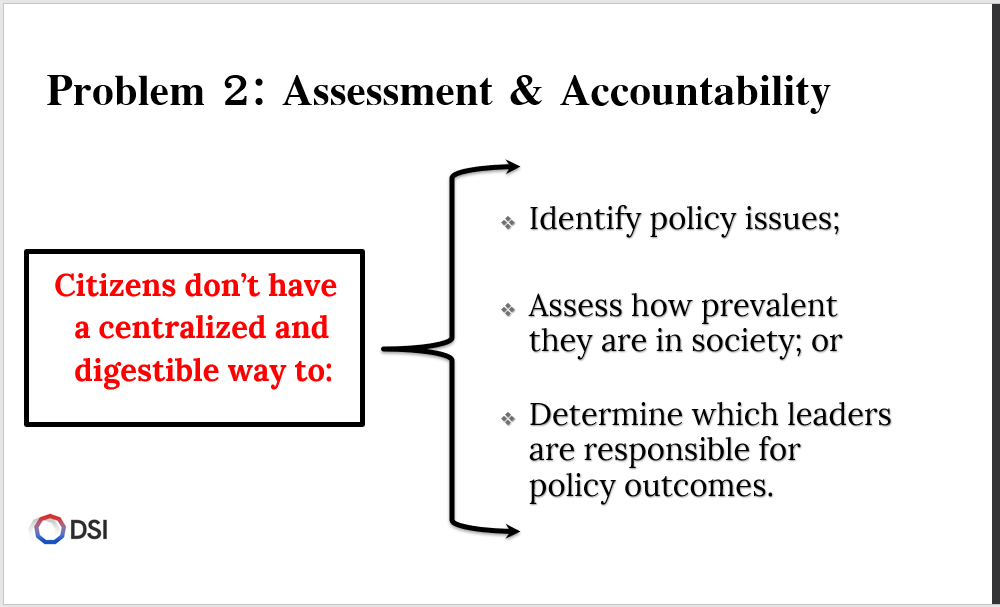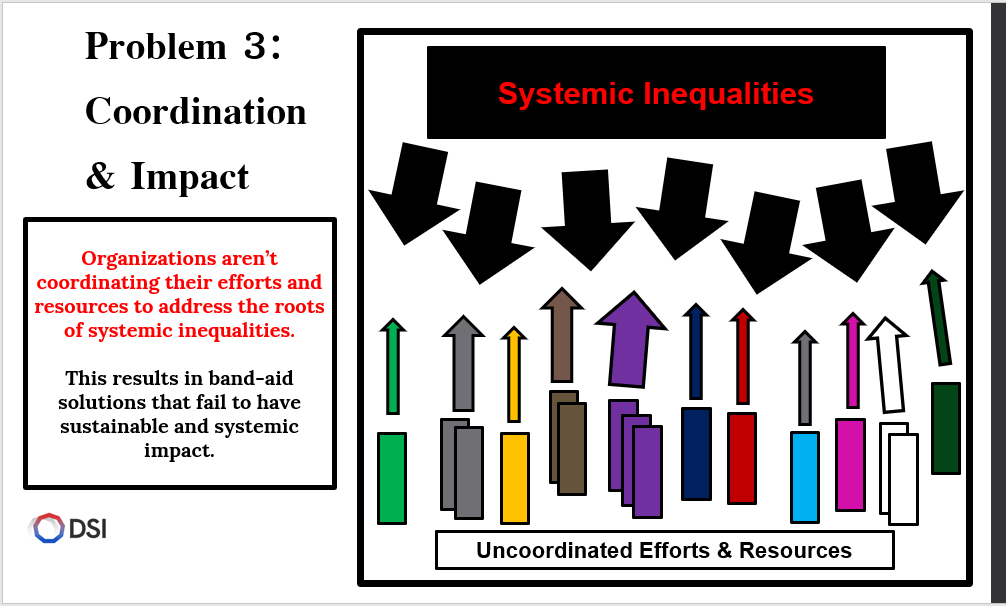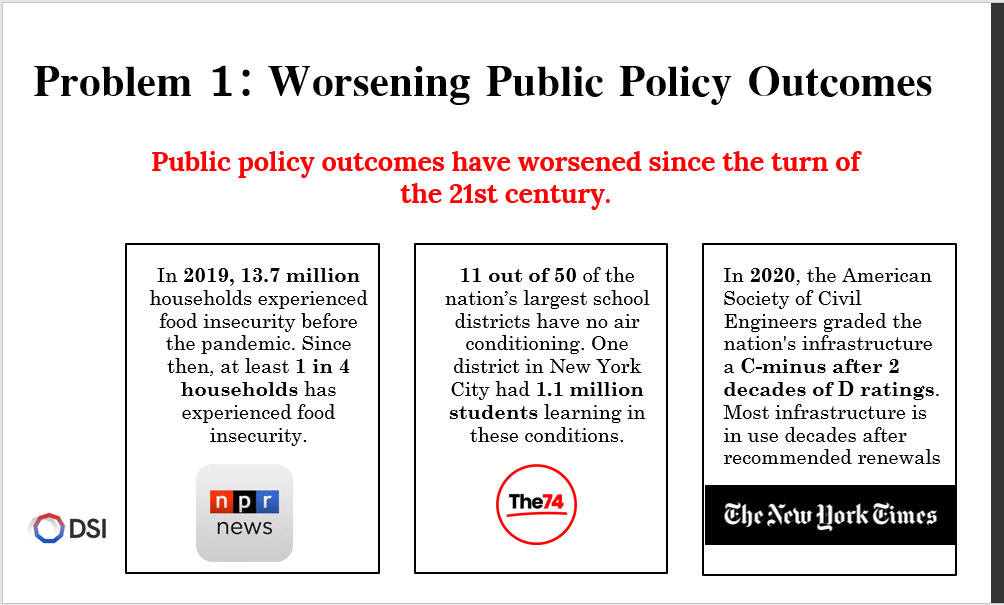Since the turn of the 21st century, political and economic elites (from both parties) have benefited from structural inequities in the form of exploitation, crumbling infrastructure, misinformation, and social division, while the American public continues to suffer from worsening societal outcomes.
Despite the loss of faith in elected leaders and the growing sense that societal outcomes are worsening, the American public lacks a centralized and digestible way to:
- Identify policy issues the government has a duty to address;
- Assess how prevalent they are in society; or
- Determine which leaders are responsible for the societal outcomes.

The most important element of a democracy is an active and well-informed public that can evaluate the performance of its government and work collectively to hold its leaders accountable. If we can’t accurately assess the performance of democratic leaders and institutions, how can we understand our needs as a society and evaluate the performance of elected leaders? Having proper oversight and accountability mechanisms are necessary for any democratic government that claims to be of the people, by the people, and for the people.
The inability of the public to accurately assess the performance of its democratic institutions and elected officials is the gravest danger threatening the future of American democracy.
Because U.S. leaders have failed to uphold their end of the social contract, people and organizations are working locally to provide services and alleviate systemic inequalities. However, many groups don’t coordinate their efforts and resources to create an intentional and sustainable impact.
Instead, many groups work in isolation and pursue band-aid solutions that fail to produce substantive and sustainable impact. While surface-level solutions may provide individuals and families with temporary relief, they don’t address the underlying factors that cause the majority of people to suffer.

If we cannot accurately assess the performance of our democratic institutions, how can we understand our needs as a society and ensure our representatives create the policies we desire?
All three problems are rooted structural inequities that inhibit principled, strategic, and collaborative action.
